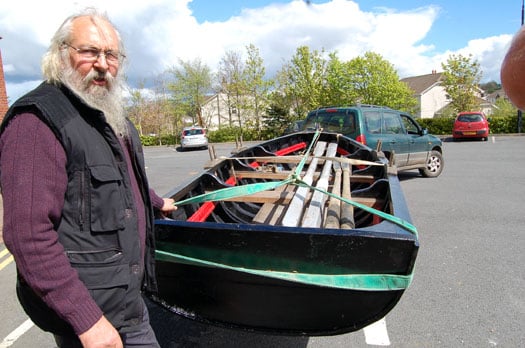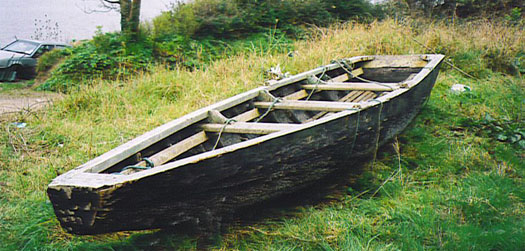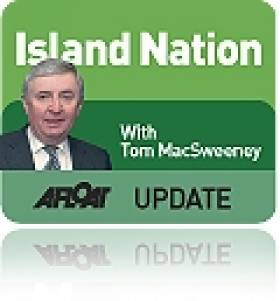Displaying items by tag: Prong
#thisislandnation – After an absence of several years it is a pleasure to return to the airwaves, a decision I have taken in pursuance of my belief that the national media is seriously neglectful of maritime matters. The marine sphere is not adequately served by the national media, print or broadcast. The specialist media such as AFLOAT and community radio offers an alternative voice, so do social media outlets.
THIS ISLAND NATION is a monthly hour-long radio programme of which the first edition available here on Afloat.ie highlights the decay forced upon coastal communities by government and EU policies.
Sean Doherty, who I interviewed for my programme at the 'EMPOWERING COASTAL COMMUNITIES' Conference in County Waterford, is a man who is trying to preserve his local community at Cheekpoint on the Waterford Estuary. He describes how the ending of the drift net fishery, followed by the closure of the eel fishery, has contributed to what he sees as the destruction of his community. Men earned a living from the fisheries for their families, others were employed to maintain engines on the boats, more had work repairing the fishing boats and local restaurants served their catches as local produce. But these aspects of life in Cheekpoint no longer exist. The village has suffered heavily. His interview indicates how decisions were made by politicians and State administrators without carrying out any examination of the social effects and the damage they would cause to the communities affected. Those communities were treated with disregard and what amounts to contempt for their future. It is a sombre story.
The oceans are, in places, a wilderness, sweeping the globe and washing the edges of our cities. They provide opportunity and potential. The coastal communities are the first interface of Ireland with the sea at the coastal rim of this island nation.
So why is it that the sea is not regarded as a priority national interest?
The answer lies in a failure of political and economic perception, fuelled by an adherence to globalisation rather than pride in being an island nation.
Ireland is the most western island nation in Europe, but there is no pride evident in Government circles that we Irish are islanders. At the highest level of political life and civil service administration, as well as amongst the national media and the general public, there is a failure of perception to realise that being islanders gives Irish people an unique place in Europe. The concept of globalisation, which policies favour, is the destruction of uniqueness.
As Sean Doherty says in the interview, there are publicly expressed concerns and movements calling for the protection of indigenous communities around the world; and for the promotion of multi-culturalism in Ireland; but there is little or no interest and no movements for the preservation of the indigenous people of Ireland –the coastal and fishing communities.
The voice of the sea can speak to the soul, that voice should be heard by those who make the decisions which affect Ireland.
While there are some positive steps, which are also outlined in the programme - THIS ISLAND NATION - which you can hear on this website, these are not enough to counterbalance neglect of the maritime sphere. More is needed.
Cheekpoint nestles in the Waterford Estuary near where the Rivers Suir and Barrow meet, lying beneath Minaun Hill and has a magnificent, panoramic view across Waterford Harbour.
Sean Doherty described himself to me as an angry, frustrated man at what he sees as he looks out from his home on the estuary, "because what I am seeing is destruction caused by a form of blindness."
The Prong is the local boat which has been used by fishermen from the village. The first one built in many years is pictured below, together with an example of an older boat. The coastal communities are endeavouring to maintain their maritime heritage. So should the nation.

Above John Gossip with the new Cheekpoint Prong and below an older example of the craft

Twitter: @TomMacSweeney
























































